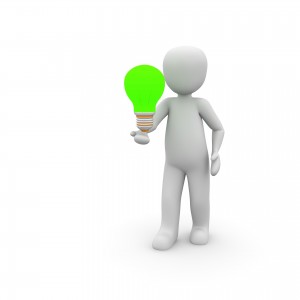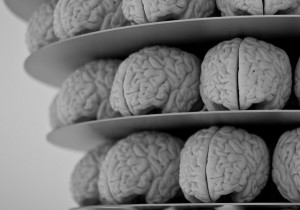 A confusing and quite frankly ludicrous new law on psychoactive substances in the UK could see a potential ban on some nootropics.
A confusing and quite frankly ludicrous new law on psychoactive substances in the UK could see a potential ban on some nootropics.
The far-reaching but ill-thought out Psychoactive Substances Bill, approved this month, seeks to ban ‘legal highs’, substances that mimic street drugs such as ketamine, ecstasy and cannabis but are made in labs and are just different enough to avoid existing bans.
The government says it wants to ‘protect hard-working citizens’ (stuff the non-working ones then) but it intends to do so via one of the vaguest, catch-all blanket bans that I’ve ever heard of.
The Psychoactive Substances Bill Explained
 The bill, due to come into effect in April, makes it an offence to ‘produce, supply, offer to supply, possess with intent to supply, import or export psychoactive substances; that is, any substance intended for human consumption that is capable of producing a psychoactive effect.’
The bill, due to come into effect in April, makes it an offence to ‘produce, supply, offer to supply, possess with intent to supply, import or export psychoactive substances; that is, any substance intended for human consumption that is capable of producing a psychoactive effect.’
That phrase ‘psychoactive effect’ is what causes the trouble. Because guess what the World Health organisation defines psychoactive as? To quote: ‘Psychoactive substances are substances that, when taken in or administered into one’s system, affect mental processes, e.g. cognition or affect.’
Ah, drugs that affect cognition… so, nootropics then? Nootropics have been proved to enhance different aspects of mental function, such as cognition, memory, focus, stress and more. Some can be used to effectively treat anxiety or depression, while others are currently being investigated for their positive effect on diseases such as age-related mental decline, Alzheimer’s and other forms of dementia.
Certain nootropics are popular among students as study aids, but they aren’t the only people who use nootropics… academics, shift workers, entrepreneurs and many, many others use nootropics responsibly, safely and – at the moment legally – to improve stress, mood, productivity, or more.
And these are the substances that MPs want to ban, some of the safest supplements on the market? Ones that not only help to boost cognitive function but can also protect and improve the brain’s health over the long term.
Exemptions to the Ban
There are some exemptions to the Psychoactive Substances Bill — caffeine, nicotine (because they’re completely harmless, of course), food and medical products. Controlled drugs would still be regulated by the Misuse of Drugs Act 1971.
A proposed amendment to exempt nootropics from the ban, however, was thrown out by MPs. At least they can still enjoy their Merlot and cigarettes.
Where Does this Leave Nootropics?

So, what exactly does this ban mean for nootropics? Nothing has been specified as yet, but in theory great swathes of drugs and supplements may be outlawed. I’m speculating here, but ‘smart drugs’ may still be legal under the medical product caveat, ironic when inappropriate use as cognitive enhancers could be dangerous. Racetams, however, some of the safest supplements on the market, aren’t classed as medical products, and do affect cognition….so they’re on the danger list.
Racetams help the brain to work more effectively, boosting overall brain health as well as improving memory, focus, learning, mood and more. They also meet the nootropic definition of being nearly side-effect free and non-toxic. Will people really be forced to give them up? Or will they risk breaking the law by importing them from other countries without such crazy blanket rules?
What of other nootropics? Well, I’d guess that vitamin and mineral-derived nootropics may fall under the food category and so be exempt (that is pure speculation at the moment on my part), but what about herbal nootropics? Who knows?
The Transhumanist Party have written to the House of Lords and the Commons asking them to exclude nootropics from the ban, and to familiarise themselves with every single class of psychoactive substance the Bill intends to ban.
Surely that should be the minimum requirement before MPs can change so many people’s lives so significantly.
